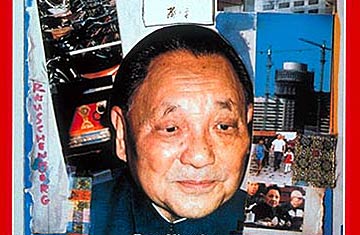
(2 of 17)
Already Deng has changed the daily lives of his nation's citizens to a greater extent than any other world leader. Foreigners revisiting China after a lapse of only a few years can scarcely believe that they are in the same country: the free and well-stocked food markets, the neat little homes and humming village industries springing up throughout the countryside, the openness to foreign influences ranging from computer technology to rock music are like nothing they or their hosts have seen before. Neither is the willingness of intellectuals, like Deng impatient with ideology, to discuss how much of it can be dumped in the interest of still faster growth. It is primarily because his continuing reform of China and Marxism holds more promise for changing the course of history than anything else that occurred during 1985 that Deng Xiaoping is TIME's Man of the Year.
To be sure, other personalities and events dominated the day-to-day headlines. After the deaths of three infirm leaders in four years, the Kremlin finally chose a chief, Mikhail Gorbachev, who at 54 is young enough to give the U.S.S.R. vigorous leadership for the rest of the century. Gorbachev moved quickly to consolidate his power, firing old-line bureaucrats by the score and wooing popular support by touring Soviet farms and factories in the manner of a handshaking, baby-kissing Western politician. He broke the long, frozen silence between the nuclear superpowers by agreeing to meet President Ronald Reagan in Geneva for the first Soviet-American summit in six years. Their November talks in front of a cozy fire moved none of the substantive issues closer to solution. On the paramount question of arms control, though both have proposed a 50% cut in offensive nuclear weapons, agreement is still being blocked primarily by Reagan's insistence on continuing his Strategic Defense Initiative and Gorbachev's vehement demand that it be abandoned. It was notable, however, that despite Gorbachev's pre-summit threat that nothing else could be accomplished unless this demand was met, he chose to present himself as moderately satisfied with the summit and to continue the dialogue--leading most observers to award Reagan a summit "victory."
Other long-festering dangers kept the world in turmoil. Terrorist murders and kidnapings became more brazen: the hijackings of TWA Flight 847 in June, an EgyptAir jetliner in November and the Italian cruise ship Achille Lauro in October were only the most spectacular incidents. Though governments did finally begin to fight back, their efforts illustrated the complexities and perils of antiterrorist action: the U.S. capture of the Achille Lauro hijackers strained relations with Egypt and Italy, while 60 passengers on the EgyptAir jet were dead after Egyptian commandos stormed the grounded plane in Malta. But in Argentina the elected civilian government of President Raúl Alfonsin sentenced to long prison terms five members of the former military junta who were convicted of practicing what might be called state terrorism: the kidnaping, torture and killing of innocent citizens.
